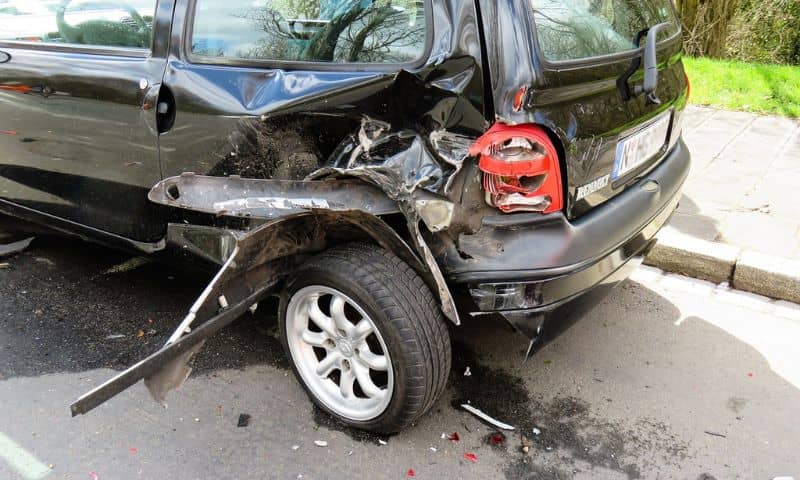
Can You Sue the Estate of a Deceased Person For Personal Injury in West Virginia?
If you are injured in an accident and the person who injured you passes away, how do you receive compensation? One way is to file a claim against the person’s insurance company. However, if their insurance policy doesn’t cover damages, another option is to file a claim against the deceased person’s estate.
Suing someone’s estate is a complicated process that requires the assistance of an experienced attorney. This article explains the basics when it comes to filing a claim against an estate, including what an estate is, why someone would sue an estate for personal injury, how and when to file a claim, and how to sue an estate’s beneficiaries.
For a complimentary case evaluation, contact the Morgantown, WV personal injury lawyers at Miley Legal. We would be happy to speak with you about your case and provide assistance.
What Is an Estate?
When someone dies, all of their assets, including money, real estate, vehicles, other property, etc., are included in what is known as their estate. To manage and properly dispose of these assets, someone is appointed as the decedent’s personal representative, otherwise known as the executor of the estate.
If the decedent has a will, that document will designate an executor. If not, a court can appoint someone during a process known as probate. In either case, it is important to have someone designated as the estate’s legal representative.
One of this person’s jobs is to accept lawsuits filed against the estate, including personal injury claims. When filing such a claim, all of the usual legal rules regarding negligence, filing deadlines, etc., apply. The only difference is that the executor is now the one who has to respond and mount a defense.
Why Would Someone Sue an Estate for Personal Injury?
Although it doesn’t happen very often, there are several scenarios in which a personal injury lawsuit could be filed against a person’s estate after they die. For example, when someone is injured in a car crash and the driver of the other vehicle who was allegedly at fault dies in the accident, the victim’s attorney would file a personal injury claim against the estate of the driver who died.
If both parties die in the accident, the attorney of one of the drivers can file a wrongful death lawsuit against the estate of the other driver.
Although car accidents make up the majority of personal injury lawsuits against the estates of deceased individuals, such an action could be filed in any instance where someone is injured and the person at fault (usually due to negligence) later dies.
How to File a Personal Injury Claim Against Someone’s Estate
If you already filed a personal injury or other claim against the estate before the defendant died, the executor of the estate usually will become the defendant in the case, which will proceed as it would have if the original defendant were still alive.
If the original defendant died before the lawsuit was brought, the complaint will have to be served on the executor of the estate. If an executor has not been appointed, a court order may be sought to have one appointed.
When to File a Personal Injury Claim Against Someone’s Estate
Under Section 55-2-12 of the West Virginia Code, any personal injury claim must be brought within two years after the right to bring the claim arose. Generally, this means two years after the injury occurred or was discovered. As a result, a personal injury claim against an estate must be filed within this timeframe or it will not be allowed.
In addition, anyone with a claim against an estate must present the claim within 60 days after notice to creditors has been published by the estate’s personal representative according to law.
It is also important to note that other debts owed by the decedent take precedence over any judgment one might win in a personal injury lawsuit. According to Section 44-2-21 of the West Virginia Code, the order in which the decedent’s debts are to be paid is:
- Costs and expenses of administration
- Reasonable funeral expenses
- Debts and taxes with preference under federal law
- Unpaid child support which is due and owing at the time of the decedent’s death
- Debts and taxes with preference under other laws of the State of West Virginia
- Reasonable and necessary medical and hospital expenses of the last illness of the decedent, including compensation for persons attending the decedent during his or her last illness
- All other claims
A judgment in a personal injury lawsuit would fall under item (7), “All other claims”. The other types of claims under items (1) through (6) would be paid first.
How to File a Personal Injury Claim Against an Estate’s Beneficiaries
Under Section 44-3A-33 of the West Virginia Code, if the assets of an estate have already been distributed to the estate’s beneficiaries before a personal injury lawsuit is filed against the estate, some or all of the beneficiaries may be sued within two years of the distribution if the action is not barred by the statute of limitations. However, in this scenario, the beneficiaries would not have to pay more in a judgment than they received from the estate.
Contact a Law Firm With Experience – Call Miley Legal
Whether you need a personal injury consultation in Parkersburg, Clarksburg, Martinsburg, or elsewhere in West Virginia, we are here to help. Call our firm for a complimentary consultation today.


